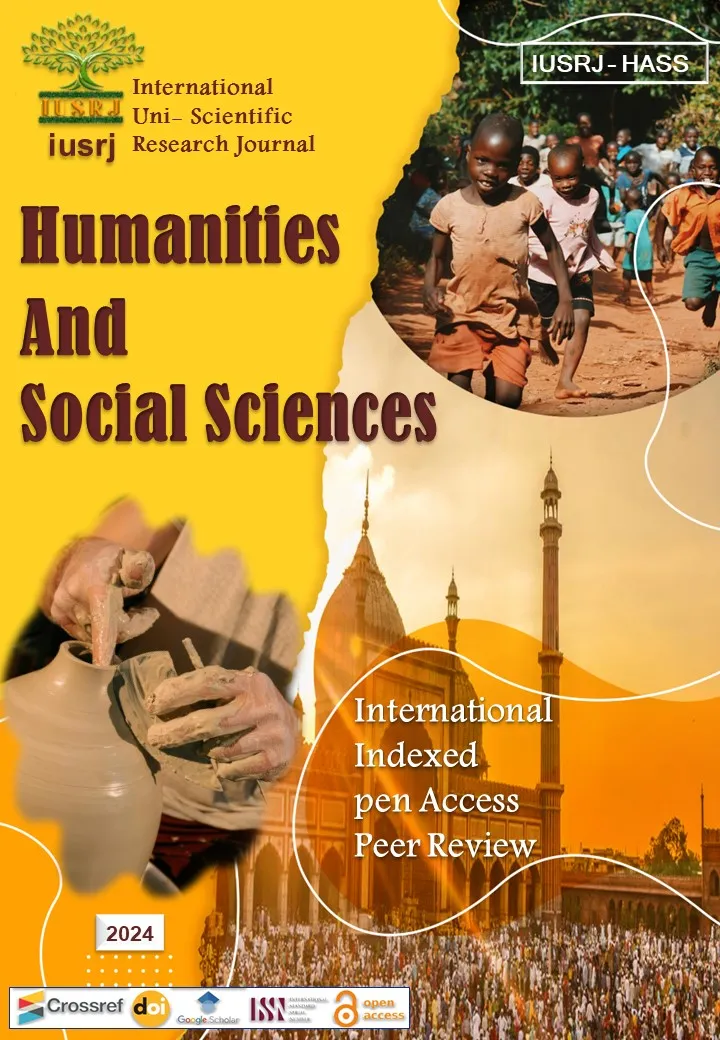This study aims to determine the nature of the correlational relationship between morphological awareness and vocabulary knowledge. Its sub-objectives are firstly, to verify the existence of a statistically significant correlation between the components of morphological awareness and the dimensions of vocabulary knowledge, and secondly, to identify the nature of the impact of morphological awareness on learners' vocabulary size. The researchers administered a test kit consisting of three main tests for morphological awareness and three other tests for the dimensions of vocabulary knowledge. This was done to measure the interactive relationship between morphological awareness and its impact on developing the vocabulary size of third-year preparatory school students. A descriptive approach was used to achieve the research objectives. The results of the study showed statistically significant correlations between the components of morphological awareness and the dimensions of vocabulary knowledge among learners. The findings also emphasized the effective role that morphological awareness, in its various forms, plays in developing and enhancing learners' vocabulary size. The study tests revealed that understanding the established relationship between the components of morphological awareness and the dimensions of vocabulary knowledge, along with realizing their relationships and manifestations, can provide a correct direction for formulating educational curricula and programs. This understanding can also inform the building of appropriate and sound foundations and strategies for the educational content adopted in school books, in a manner consistent with cognitive linguistic strategies to enhance the vocabulary size of preparatory school students.
Keywords:
Morphological awareness, Vocabulary knowledge, Arabic language, Secondary preparatory education
[1] Aitchison, J. (2003a). Words in the mind: an introduction to the mental lexicon, Oxford, UK: Black-well.
[2] Anderson, R. C. & Freebody, P. (1981). Vocabulary knowledge. In J. Guthrie (Ed.), Comprehension and Teaching: Research Reviews (pp. 77-117). Newark, DE: International Reading Association.
[3] Bertram, R. Laine, M. & Virkkala, M, M. (2000). The role of derivational morphology in vocabulary acquisition: Get with a little help from my morpheme friends. Scandinavian Journal of Psychology, 42, 287-296.
[4] Catherine. L & Harris. B. (2016), Language and cognition, MIT, Boston University.
[5] Chapelle, C. (1994). Are C-tests valid measures for L2 vocabulary research?. Second Language Research, 10 (2). 156-187.
[6] Daller H, Milton J & Treffers-Daller J. (2007). Editors’ introduction: Conventions, terminology and an overview of the book. In: Daller, H., J. Milton, J. Treffers-Daller (eds.). Testing and Modelling Vocabulary Knowledge, (pp.1-32). Cambridge: Cambridge University Press.
[7] Evans, V & Green, M. (2006). Cognitive Linguistics: An Introduction, EDINBURGH UNIVERSITY PRESS.
[8] Henriksen, B. (1999). Three dimensions of vocabulary development. Studies in Second Language Acquisition. 21 (2). 303-317.
[9] Holender. D. (1988). Représentations phonologiques dans la compréhension et dans la prononciation des mots écrits. Cahiers du Département des Langues et des Sciences du Langage, 6, 31-84.
[10] Kuo, L & Anderson, R, C. (2006). Morphological awareness and learning to read: A cross-language perspective. Educational Psychologist, 41 (3), 161-180.
[11] Liu, N & Nation, P. (1985). Factors Affecting Guessing Vocabulary in Context. Relc Journal. 16 (1). 33-41.
[12] Meara P. (1996a). The dimensions of lexical competence. In G. Brown, K. Malmkjaer, &J. Williams (Eds.), Performance and competence in second language acquisition,(pp. 35-53).
[13] Milton J. (2013). Measuring the contribution of vocabulary knowledge to proficiency in the four skills. In: C. Bardel, C. Lindqvist, & B. Laufer (Eds.), L2 vocabulary acquisition, knowledge and use, (pp. 57-78).
[14] Milton, J & Fitzpatrick, T. (2014). DIMENSIONS OF VOCABULARY KNOWLEDGE. Cambridge University Press.
[15] Nation, I. S. P. (2001). Learning vocabulary in another language. (1th ed.). Cambridge: Cambridge University Press.
[16] Nation, I. S. P. (2006). How Large a Vocabulary Is Needed For Reading and Listening? The Canadian Modern Language Review, 63 (1). 59-82.
[17] Nation, I.S.P. (1990). Teaching and Learning Vocabulary. New York: Newbury House.
[18] Qian D. D. (1999). Assessing the roles of depth and breadth of vocabulary knowledge in reading comprehension. The Canadian Modern Language Review, 56, (2). 282-307.
[19] Richards, J. C (1976). The role of vocabulary teaching. TESOL Quarterly. 10. 77-89.
[20] Schmitt. N. (2014). Size and Depth of Vocabulary Knowledge? What the Research Shows. Language Learning. (64). 913-951.
[21] Webb, S, Sasao, Y & Ballance, O. (2017). The updated Vocabulary Levels Test: Developing and validating two new forms of the VLT. ITL. International Journal of Applied Linguistics. 168 (1), 34-70.
[22] Wysocki, K., & Jenkins, J.R. (1987). Deriving word meanings through morphological generalization. Reading Research Quarterly, (22). 66–81.
Citation
Hamza Ghoura, Mohammed Lbrouzi and Mostafa Bouanani(2025),The importance of morphological awareness in the development of vocabulary knowledge among preparatory school students: A linguistic-cognitive approach. IUSRJ International Uni-Scientific Research Journal (6)(3),12-17. https://doi.org/10.59271/s45741.025.0346.3Call for Paper

We are going to launch a new Volume, 15th of next Month of peer-reviewed OpenAcess journal publishing original research articles. IUSRJs' publish innovative papers, reviews, mini-reviews, rapid communications and scheduled to monthly. For this purpose, we would like to ask you to contribute your excellent papers in IUSRJs'. Your comments will help us improve the quality and content of the journals. The journals accepts Review Articles, Original Articles and Short Communications. Brief Report, Books Review, Thesis Submit your valuable work: Submit Now Submit your article through : [email protected]
